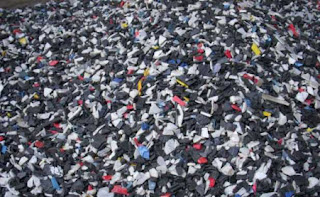In West Virginia, an official of Kanawha County, which includes Charleston, the state capital, has called on residents to stockpile their own plastic and metals, which the county mostly stopped taking on Friday. In eastern Pennsylvania, the small town of
Eurogroup recycling recently suspended its recycling program when it became cheaper to dump than to recycle. In Montana, a recycler near Yellowstone National Park no longer takes anything but cardboard.
There are no signs yet of a nationwide abandonment of recycling programs. But industry executives say that after years of growth, the whole system is facing an abrupt slowdown.
Many large recyclers now say they are accumulating tons of material, either because they have contracts with big cities to continue to take the scrap or because they are banking on a price rebound in the next six months to a year.
“We’re warehousing it and warehousing it and warehousing it,” said Johnny Gold, senior vice president at the Newark Group, a company that has 13 recycling plants across the country. Mr. Gold said the industry had seen downturns before but not like this. “We never saw this coming.”
The precipitous drop in prices for recyclables makes the stock market’s performance seem almost enviable.
On the West Coast, for example, mixed paper is selling for $20 to $25 a ton, down from $105 in October, according to Official Board Markets, a newsletter that tracks paper prices. And recyclers say tin is worth about $5 a ton, down from $327 earlier this year. There is greater domestic demand for glass, so its price has not fallen as much.
This is a cyclical industry that has seen price swings before. The scrap market in general is closely tied to economic conditions because demand for some recyclables tracks closely with markets for new products. Cardboard, for instance, turns into the boxes that package electronics, rubber goes to shoe soles, and metal is made into auto parts.
